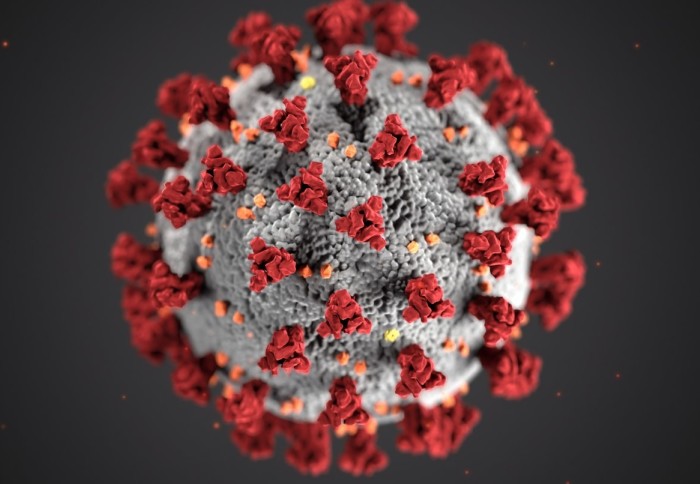Research groups in Materials work to develop diagnostics for COVID-19

The outbreak of COVID-19 has to date infected over nine million people globally.
A number of researchers in the Department have been working hard to develop new diagnostics which will provide fast and accurate detections of coronavirus, even for people who are asymptomatic.
The group of Professor Molly Stevens

The group of Professor Molly Stevens are working to develop a coronavirus test which aims to deliver a rapid diagnosis, using ultra-low concentration of the virus. The group are also working on polymer nanoparticles with potential antiviral effects and pulsatile release vaccine systems that would eliminate the need of multi-dose vaccines.
This would mean that patients can be diagnosed much earlier in the infection’s life-cycle, as many of the current point of care lateral flow tests do not allow early detection of the infection. If patients can be diagnosed earlier in the infection’s life-cycle, they can be isolated and receive treatment, reducing the spread of the outbreak.
Professor Molly Stevens, from the Departments of Materials and Bioengineering, is leading the project, which has received more than €600,000 in funding and is being supported by the EU’s European Institute of Innovation and Technology, Imperial’s COVID-19 Response Fund and the Rosetrees Trust.
In response to the COVID-19 pandemic, my research group has continued to work with determination to support the development of game-changing technology to address the urgent need for reliable, cost-effective and fast COVID-19 diagnostic tests Professor Molly Stevens
The researchers aim to complete the development phase of the point-of-care diagnostic device, called QwikZyme, within the next six months. They are working closely with Imperial College Healthcare NHS Trust to carry out clinical testing.
Professor Stevens said: “An ultra-sensitive rapid point of care diagnostic test for COVID-19 is urgently needed, as the virus continues to spread.
"Our rapid test design is for point of care use to help us overcome the challenge of detecting asymptomatic carriers, as well as diagnosing patients much earlier and more quickly.
"This would enable patients to be isolated and treated earlier, and help control the spread of outbreaks.
Professor Stevens has discussed the research in more detail on the Imperial People blog.
Materials PhD student Tabasom Haghighi, who is a member of the Stevens group, has also filmed a 'Day in the Lab' to provide a glimpse of their current research.
The group of Dr. Fang Xie

Dr. Fang Xie’s group was recently awarded Imperial College COVID-19 Research Fund to work on a project titled "Developing a high sensitivity and high specificity COVID-19 Immunoassay using Nanotechnology”.
Dr. Xie explained that "in contrast to the current standard diagnosis based on real time PCR technology, which detect those patients who are concurrently infected, there is an urgent national priority to increase the number of serologic test, which could help identify those who have had the disease - as it has been reported that there are populations who are asymptomatic".
More importantly, an antibody test could answer ‘big picture’ questions regarding public health. Monitoring the concentration of antibodies using such a test could help researchers to understand how long the immunity lasts, a key issue for vaccine development.
The ultra sensitive detection of antibodies of COVID -19 enabled by the powerful metal induced fluorescence platform will provide an important landscape of the infection Dr. Fang Xie
In this project, PhD students Sarah Fothergill and William Morton from Dr. Xie’s group have been working closely with collaborators — Prof Peter O’Hare from the Dept of Infectious Diseases and a biotech company, to deliver a robust, highly sensitive and locally deployable assays for coronavirus antibody test, exploiting a powerful nanotechnology, Plasmonic enhanced bioassay.
By the end of the project, the group aim to have assembled such an easy-to-fabricate and low cost system enabling rapid and sensitive antibody test with the capability of qualification, ready for translation and deployment.
Dr. Xie said "We are really excited that our project was funded. The ultra-sensitive detection of antibodies of COVID -19 enabled by the powerful metal induced fluorescence platform will provide an important landscape of the infection."
We look forward a fruitful collaboration with virologists and biotechnology industry.”
The group of Professor Norbert Klein

Over the last 3 years Prof Norbert Klein’s group has made continuous progress with the development of graphene technology for sensor applications, aiming towards a wafer-scalable platform for disposable chip-based label-free biosensors with purely electrical readout.
Based on recent progress with detection of exosomes - virus-sized cell vesicles with strong potential for early stage cancer diagnosis [1] - the group has included COVID-19 detection in their portfolio.
This is accomplished by a simple replacement of the capturing antibodies utilising protocols developed over the last years. Similar to exosomes, the detection mechanism is based on electrical charges localised at the spike proteins of COVID-19 – utilising the unique ambipolar field effect in graphene.
Based on the dramatic sensitivity improvement the group has recently achieved through carbon nanodot decoration of graphene [2] – in collaboration with Professor Magda Titirici’s group in Chemical Engineering – it is expected that this technology is capable to deliver checkpoint-suitable virus test kits, which could allow test results from swab or saliva samples within a few minutes.
As a result, this technology has a strong potential to become a game changer with regards to the ability for controlling the current and future pandemics."
As a result, this technology has a strong potential to become a game changer with regards to the ability for controlling the current and future pandemics. Professor Norbert Klein
Due to the relevance for checkpoints, Imperial’s Institute of Security Science and Technology will fund a PhD project from October this year. Two Post Doctoral Research Assistants (Dr Sami Ramadan and Dr Lizhou Xu) have also resumed their work on COVID-19 detection within labs to support the research.
Professor Klein also explained the importance of new facilities in supporting the research efforts, as the departmental capabilities for wafer scalable fabrication of graphene COVID-19 sensors will be strengthened through the opening of the Royce Facility 'Atoms to Devices' at Imperial’s White City Campus later this year.
The COVID-19 activities are also a vital part of Imperial’s new multi-faculty Network for Electromagnetic and Biochemical sensors.
Article text (excluding photos or graphics) © Imperial College London.
Photos and graphics subject to third party copyright used with permission or © Imperial College London.
Reporter
Kayleigh Brewer
Department of Materials